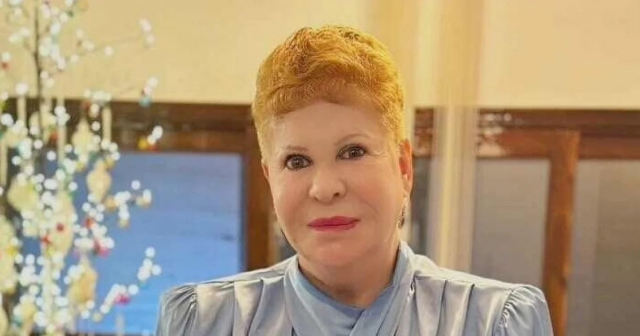The Minister of Economy and Planning,Alejandro Gil Fernandez, assured that the wage increase in Cuba fell short and did not solve the problem of inflation that is growing in the country.
Gil Fernandez said in appearance at theRound table this Thursday, thatinflation in Cuba It is happening in two ways; "increase in the real costs of the country's imports" and the "supply deficit" with "excess liquidity."
He pointed out a third cause that he avoided listing, thedevaluation of the national currency from the Ordering Task. He indicated that when designing this "task" imposed by the government on the Cuban people, it was taken into account that it would generate inflation in the country and an attempt was made to compensate for the issue with an increase in salaries. I affirm thatthis does not works.
"Inflation, which had its design, they tried to compensate with the increase in salaries, but evidently it fell short and prices have risen much more," said the deputy prime minister.
Gil Fernández said that it is a policy of the Cuban State to maintain some products and services withcapped prices, in which he assured that the inflation that exists worldwide is not reflected. Among those services he mentioned the cost of electricity. However, Cubans suffer frequent blackouts andThey pay the electricity service three times what it cost in 2020.
Gil Fernández acknowledged that thebasic basket products are not enough for the food of the Cuban people, and he was proud that the prices of these, the government has not touched.
The vice minister first assured that the problem ofinflation in Cuba It cannot be resolved by increasing wages as it would immediately bring an increase in liquidity that would put pressure on prices again and they would increase again in an infinite cycle.
He indicated that the government cannot limit producers' prices either because it causes shortages in the markets. The only solution is to increase the supply. However, companiesCuba produces less and less.
At this point he referred to theimports, pointing out that there was an increase in the international price of products such as rice, beans, oil, milk powder, wheat flour for bread, corn, animal feed and others, between 2019 and 2022. He said that currently the government does not have enough foreign currency to import everything that is needed, at world market prices.
Gil Fernández mentioned as an achievement of the State the approved measure that allows international travelers to import, without commercial character and without payment of tariffs, food, hygiene and medicines.
This is the strategy that the government uses so that the Cubans themselves, with their imports traveling to the island, are the ones who support their family and friends in the country, covering the inefficiency of the State to import and market.
"One of the phenomena that is present in inflation is theillegal dollar market"said Gil Fernández, avoiding mentioning that said market was promoted by the State, preventing the purchase and sale of dollars in CADECA.
The Cuban official warned that the exchange rate of 1 dollar for 25 Cuban pesos, imposed in the 1990s, would no longer be equivalent to the relationship between both currencies in the current context.
"These are totally different times. The exchange rate of 1x25 pesos at the time of the Special Period was with an average salary of around 300 Cuban pesos. Now the average salary in the country is around 4 thousand pesos. Maintain stability in the supply of dollars to support an exchange rate of 1x24 demands more dollars than at that time," he stated, without closing the position that the State will take in this regard.
At your discretionthe exchange rate must be modified and the Cuban government will not be able to intervene in the currency purchase and sale market until the country has an amount of money that allows operations to be carried out sustainably over time.
"Either we take the dollars to pay for the boat of rice and fuel, or we leave the boats there and put the dollars in the exchange market. That is an element that we have to reason about," said Gil Fernández.
The Minister of Economy pointed out thepossibility of creating a floating rate, injecting a certain amount of dollars so that the exchange rate is corrected based on demand. However, he said that he does not believe that this is favorable for the people of Cuba.
"Intervening in the exchange market and leaving a floating rate cannot be seen as a solution.It is not the solution to the inflation problem, nor legal access to currency, nor is it a solution for people to acquire foreign currency and consume in stores in MLC," said the first vice minister.
Gil Fernández indicated that theInflation in Cuba will not have an immediate solution. He said that production and efficiency in marketing must be prioritized, measures in agriculture must be approved, the state company must be transformed and the exchange design must be adjusted to the current situation in the country.
This week the Cubans attacked on social networksagainst statements by Gil Fernández, after ensuring that the stores in Freely Convertible Currency (MLC) in Cuba are a measure of social justice, because it allows the redistribution of the currency based on the supply of the commercial network in CUP.
The Cubans made it clear that statements like those of Gil Fernández only generate "rejection from the population", because what the stores in MLC have done is accentuate class differences, and legalize the resale of all types of merchandise at abusive prices. These measures affect workers, those who live off an honest salary.
What do you think?
SEE COMMENTS (6)Filed in:
